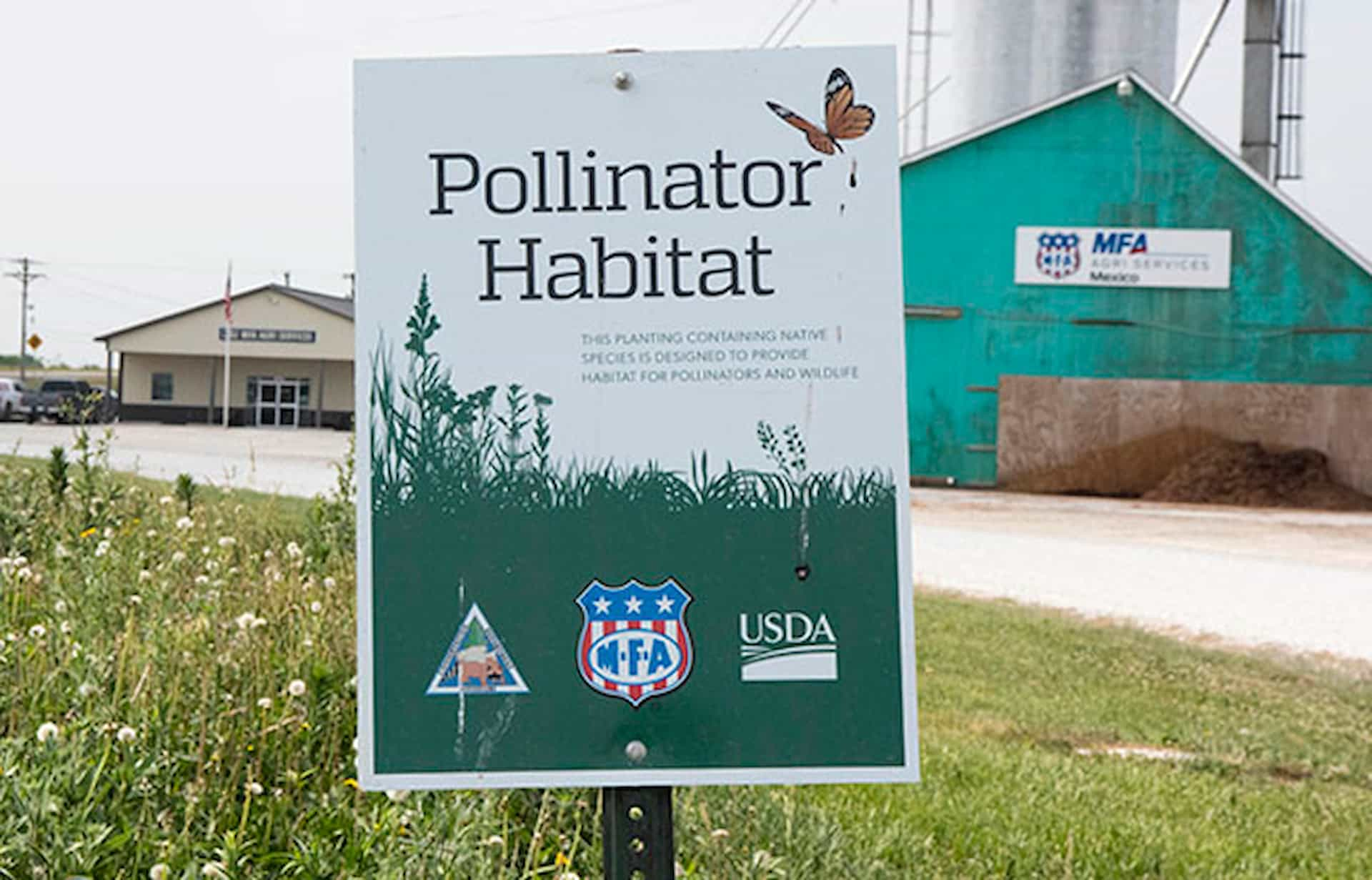Conservation
MFA promotes practices that respect the land, air and water
Stewardship is one of MFA’s core values, one that we back up with more than just words—we take action. MFA has two conservation experts on staff who work with growers and landowners on practices that incorporate conservation to achieve agronomic, economic and environmental goals.
Supporting stewardship
MFA specialists help producers implement conservation strategies
Production agriculture and conservation often seem to be at odds with each other, but MFA recognizes their interdependence in supporting farmers’ agronomic, economic and environmental goals. MFA's conservation experts work in partnership with USDA-NRCS, Missouri Department of Conservation and Missouri Department of Natural Resources to promote awareness and educate producers about programs and practices that incorporate soil, water and wildlife conservation tactics.
Grazing conservation
Diversifying your forage portfolio and management practices can help producers manage risk
Promoting awareness and educating producers about on-farm forage management strategies are priorities for MFA’s conservation grazing specialist, Landry Jones. Rotational grazing, effective weed control and establishing native warm-season grasses are among the practices that MFA encourages livestock and forage producer to implement on their farms and land.
Because the vast majority of Missouri cattle farms are cool-season grass-based, incorporating warm-season forages allows producers to gain more grazing days and provide more nutrition for their herd. While establishing native warm-season grasses is a long-term solution, planting summer annuals can also effectively fill the forage gap in the short term. No matter what type or combination of forages are in production, rotationally grazing pastures is highly recommended to manage them most effectively.
Both state and federal cost-share assistance is available to establish NWSG and rotational grazing systems. Producers should contact Jones at ljones@mfa-inc.com or their local USDA Natural Resources Conservation Service office, Soil and Water Conservation District or Missouri Department of Conservation to learn more about options that are available.

Push for pollinators
Practices provide critical habitat for insects and wildlife
Planting pollinator plots has been a popular—and important—conservation practice in recent years as populations of key pollinators dwindle, mainly due to habitat loss. To turn around this decline, government and industry are banking heavily on the efforts of farmers, local communities and citizens to adopt more pollinator-friendly practices.
Pollinator plots are a good fit for farmers because they can be established on marginal land without sacrificing production of cash crops. They’re well suited for low-yield fields and areas that don’t make economic sense to farm. The seed mixes are all native plants that can thrive in places where crops would struggle.
Multiple cost-share programs and initiatives exist to create more conducive habitat, particularly on agricultural land. Funding and assistance are available through the Farm Service Agency, Natural Resources Conservation Service, National Fish and Wildlife Foundation, Departments of Natural Resources and even groups such as Pheasants Forever and the National Wild Turkey Federation—just to name a few. Farmers and landowners should reach out to MFA’s conservation specialists or their local USDA offices to find out what program would best fit their situation.

Conservation connections
For MFA’s conservation specialists, an important part of their job is to stay on top of all the public and private programs that farmers and landowners can benefit from through agencies such as USDA’s Natural Resources Conservation Service and Farm Service Agency, Missouri Departments of Agriculture and Conservation, or entities such as Pheasants/Quail Forever. MFA personnel are also certified as technical service providers for NRCS conservation activity programs, including Comprehensive Nutrient Management Plans and Nutrient Management Plans. Technical service providers help producers plan, design and implement conservation practices or develop conservation activity plans that can help improve their agricultural operations. MFA has more than 30 staff members certified as TSPs. For details, contact Joe Zoellner, MFA natural resources conservation specialist, at jzoellner@mfa-inc.com.
How can MFA Technical Service Providers help me?
Nutrient management plans take into account grid soil sampling, topography, soil type, crop nutrient needs and many other factors to get the most out of your fertilizer investment. MFA also has staff who can write comprehensive nutrient management plans, which include all the same components plus manure-handling and application information, which is often required for feedlots, dairy farms and poultry houses.
These plans look at past pest pressures, soil type, environment, crop type, hybrid selection and many other factors to help use inputs more efficiently and grow a crop as pest-free as possible.
Keeping accurate, complete records is important to any operation, but it is vital to receive cost-share assistance from a government program. MFA’s conservation specialists in addition to TSPs who work with our Nutri-Track and Crop-Trak programs can help record, maintain and produce adequate information to meet program requirements.
Have a question about MFA services?
If you have a question related to one of our services, send us a message here. We will direct it to the appropriate expert and get you an answer. If you have specific questions about availability or pricing at your MFA retail store, contact your MFA representative or use our Store Locator to find information for the location nearest you.
Trueterra, Carbon and Conservation - Episode #85
Made for Agriculture Podcast Host Adam Jones interviews Brent Hall and Joel Wipperfurth of Truterra, and MFA's very own Landry Jones about MFA's new venture with Truterra. The new team of champions are helping farmers offset some costs, keep soil in place and even make money using cover crops and conservation tillage practices while growing their corn, soybean and wheat crops. Learn more at MFA-inc.com/carbon.
Listen on Spotify